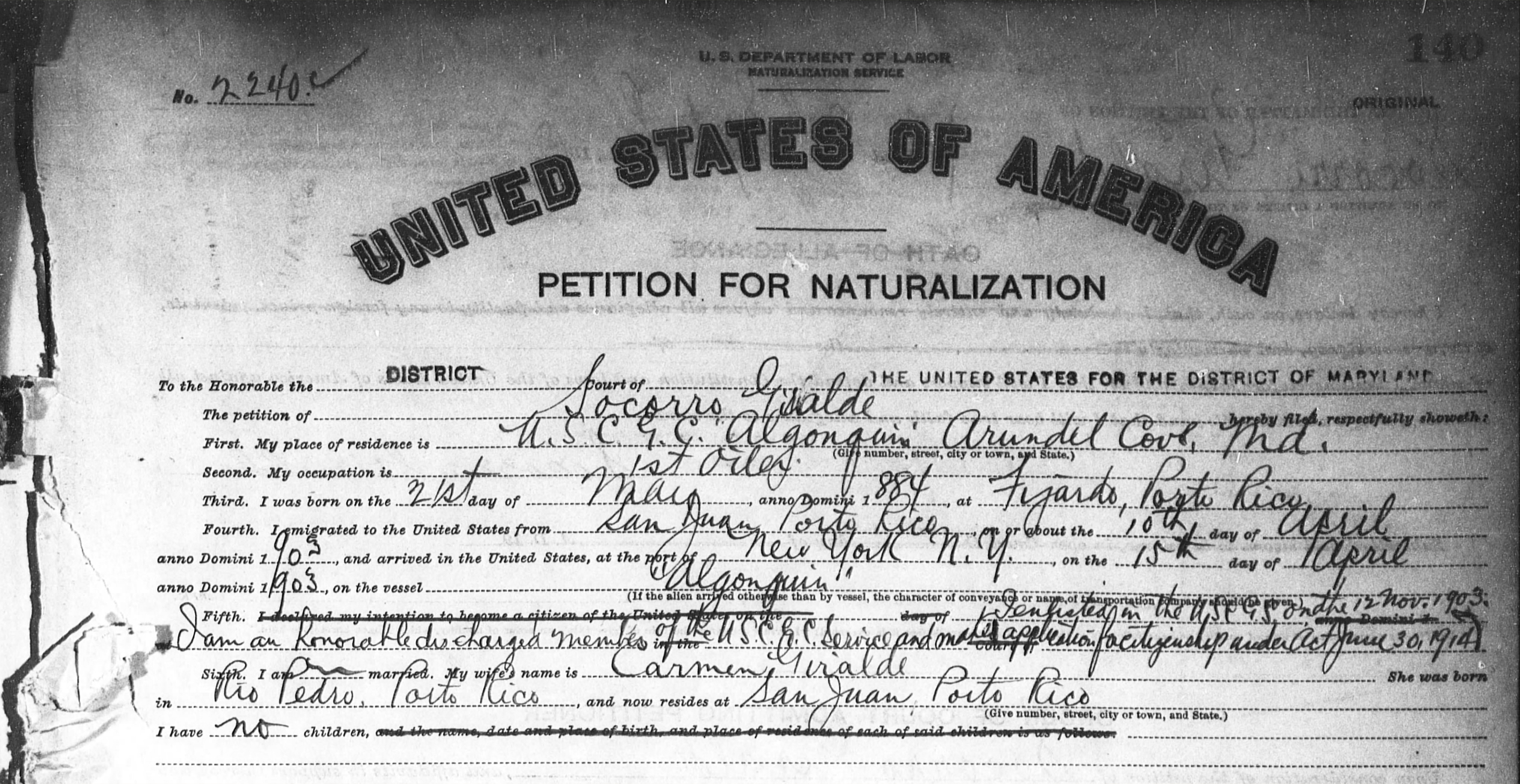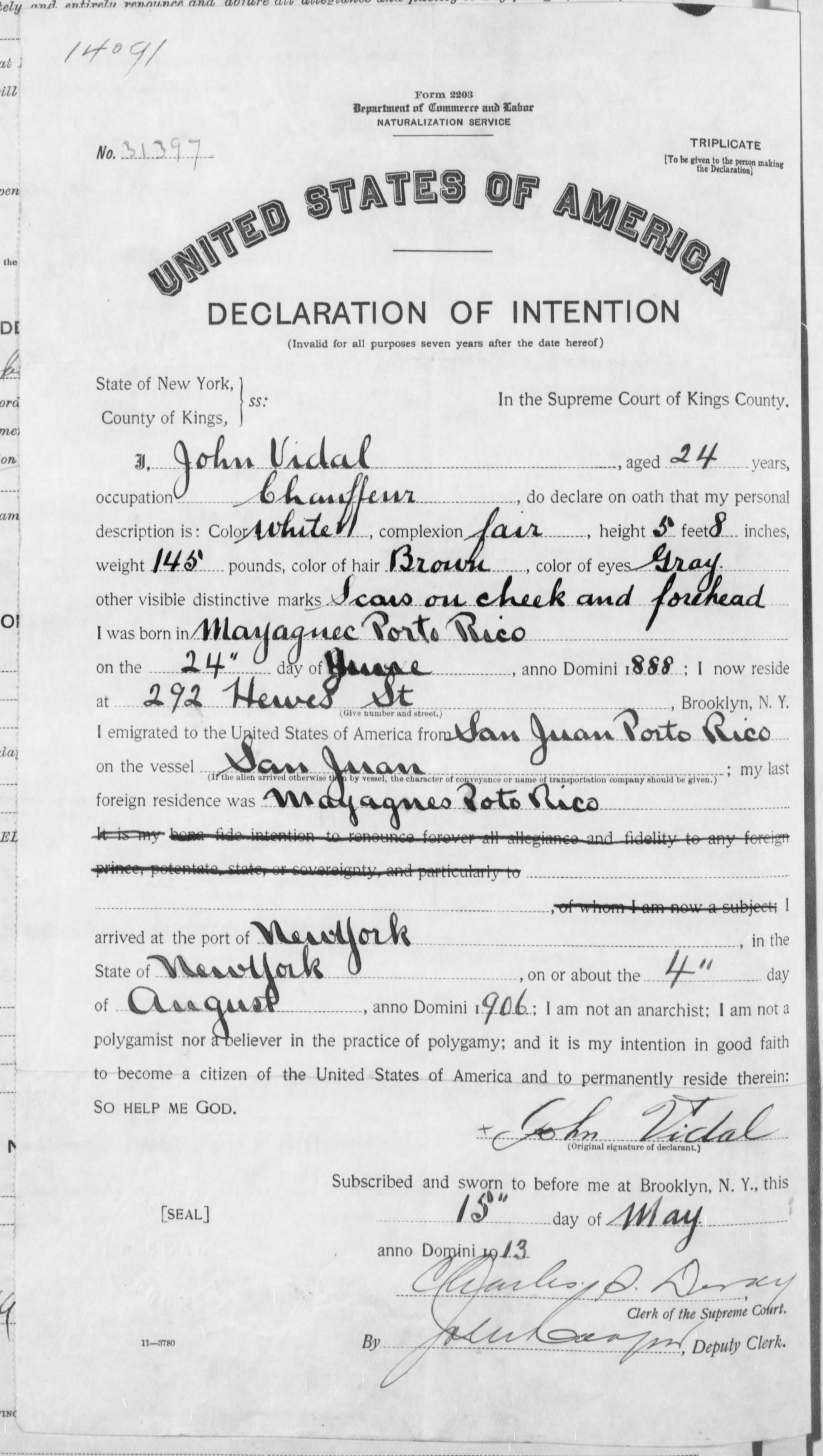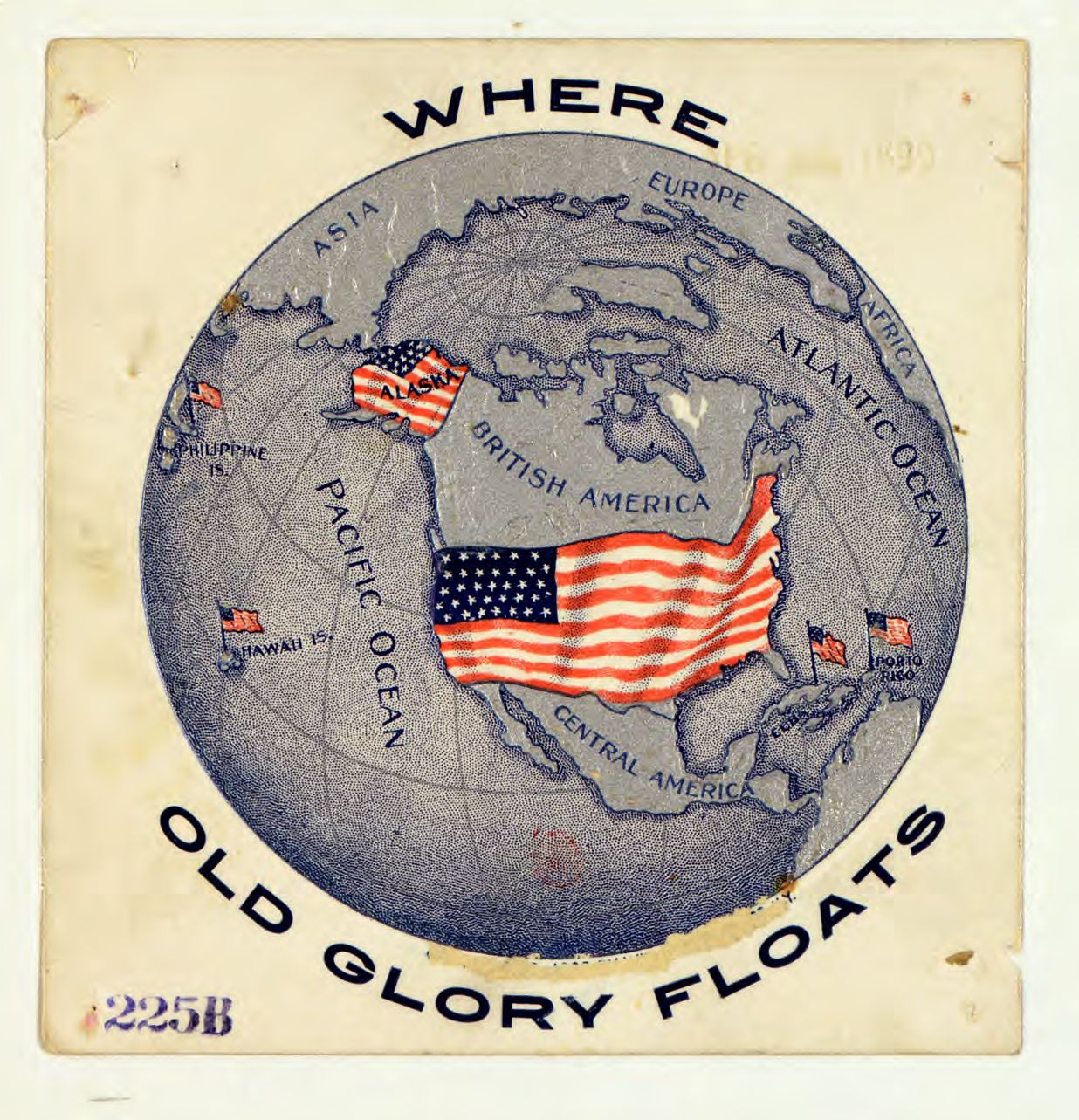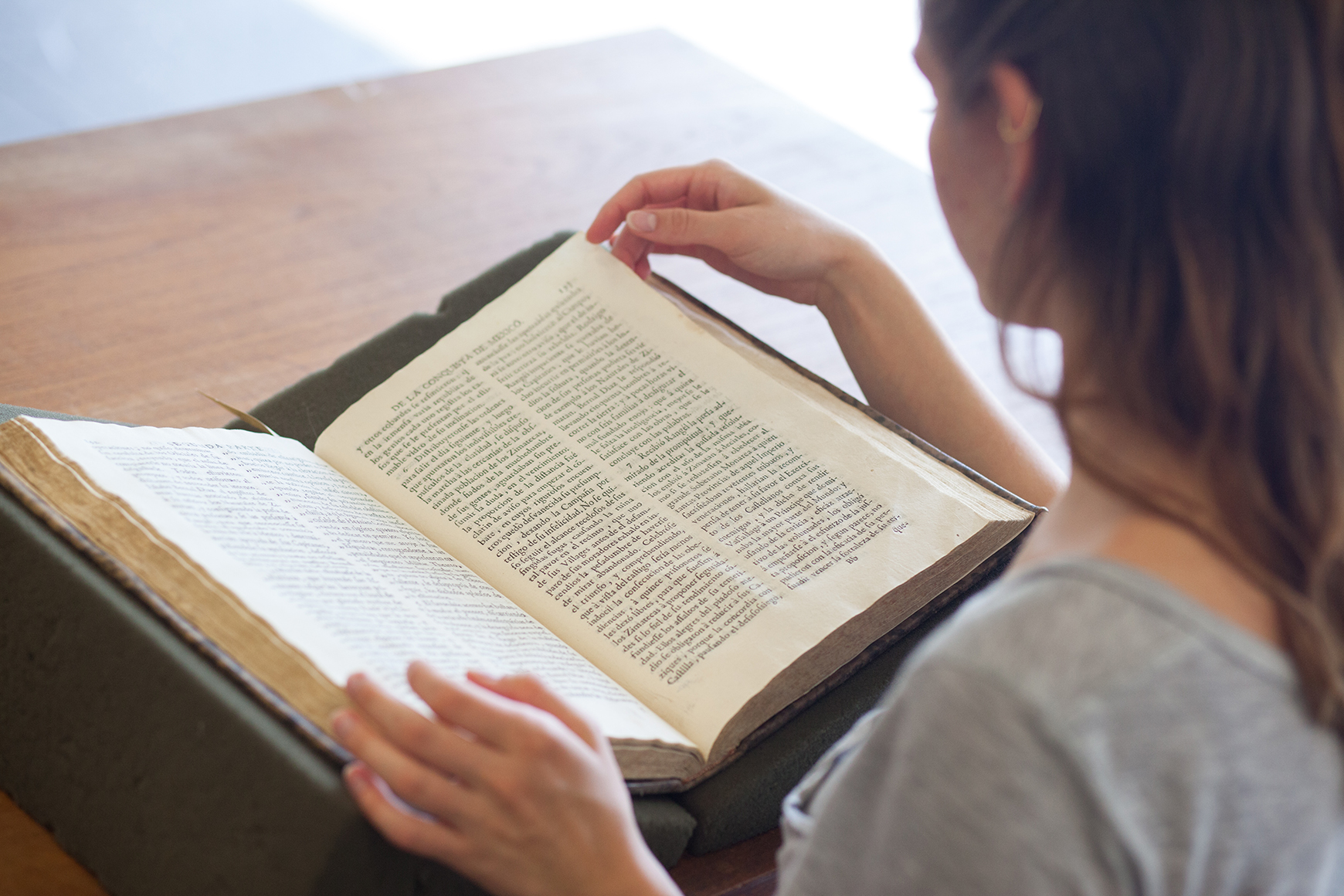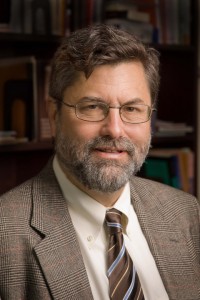By ALBERT A. PALACIOS
In the spring of 2019, LLILAS Benson Latin American Studies and Collections partnered with the Urban Teachers Program at the Department of Curriculum and Instruction in the College of Education to develop and provide free, online access to high school lesson plans. The goal was to bring together the historical perspectives of underrepresented groups, current scholarship, and digitized holdings of the Benson Latin American Collection and Latin American partners. Thanks to a Department of Education Title VI grant, LLILAS Benson was able to create a portal via UT Libraries’ open-access repositories to make these resources widely available to teachers.
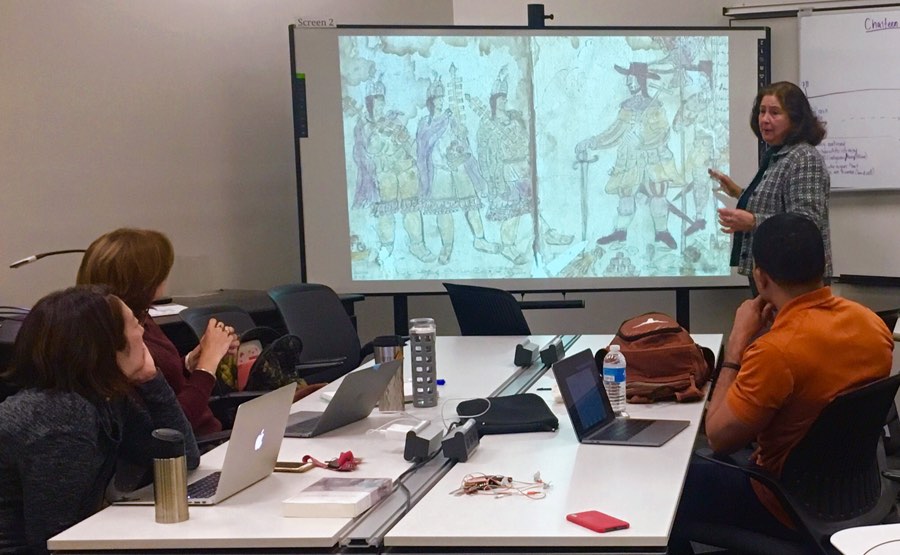
For the past two years, College of Education graduate students have been creating World History and World Geography units for use in high school classrooms. The underlying principle for these teaching materials is that students are able to understand, and then subvert, dominant historical narratives in Latin American, U.S. Latinx, and African Diaspora history given the marginalized perspectives the lesson plans highlight. Using the Benson’s digital collections, they have focused on a variety of topics, including women in colonial Latin America, the Mexican Revolution, and the Cold War in Central and South America (publication in process).
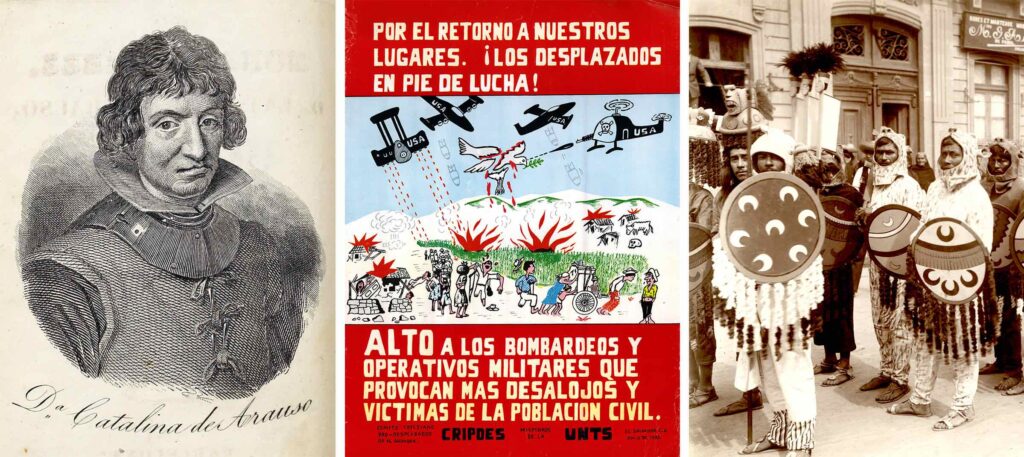
The collaboration and site has since broadened to include other disciplines, audiences, and learning objectives. LLILAS Benson Digital Scholarship staff has been partnering with faculty and graduate students in Latin American Studies, Art and Art History, Spanish and Portuguese, Mexican American Studies, and History to design Digital Humanities–focused lesson plans and assignments for undergraduate teaching. Work is also ongoing to publish technical capacity-building teaching and learning resources for graduate students, digital humanists, and archival professionals at UT Austin and beyond.
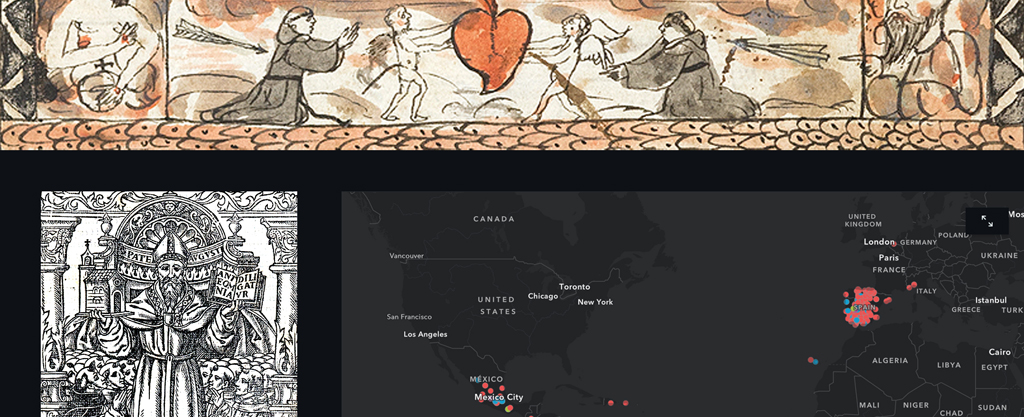
The site also helps instructors and students find and browse through LLILAS Benson’s digital resources. It consolidates under its Primary Sources section all existing LLILAS Benson digital scholarship projects, digitized collections, and exhibitions. Visitors can filter these resources by grade level, date range, course subject, and country to find relevant primary and secondary sources on their research and teaching focus.
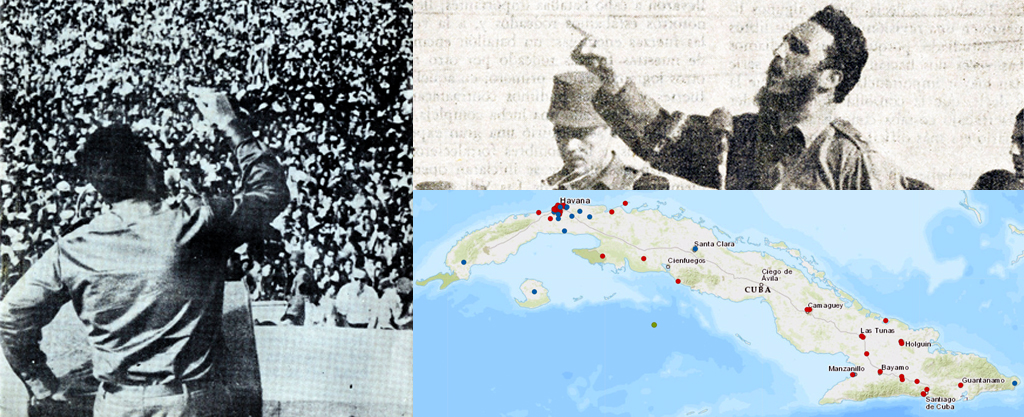
Explore the site through http://curriculum.llilasbenson.utexas.edu/. The interdisciplinary collaborations and site’s development were generously funded by the U.S. Department of Education’s Title VI Program and LLILAS Benson’s Excellence Fund for Technology and Development in Latin America. This resource was conceived, designed, and launched by:
- Lindsey Engleman, Public Engagement Coordinator (2014–2019), LLILAS Benson Latin American Studies and Collections
- Tiffany Guridy, Public Engagement Coordinator, LLILAS Benson Latin American Studies and Collections
- Delandrea S. Hall, Doctoral Candidate, Curriculum and Instruction, College of Education
- Rodrigo Leal, Website Designer and Student Technician(Spring 2019), LLILAS Benson Latin American Studies and Collections
- Casz McCarthy, Public Engagement Graduate Research Assistant, LLILAS Benson Latin American Studies and Collections
- Albert A. Palacios, Digital Scholarship Coordinator, LLILAS Benson Latin American Studies and Collections
- Cinthia S. Salinas, Professor and Chair, Department of Curriculum and Instruction, College of Education
- UT Libraries Digital Stewardship (Anna Lamphear and Brittany Centeno)


